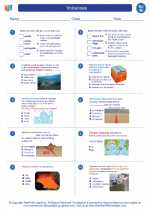Liquid
A liquid is one of the four fundamental states of matter, along with solid, gas, and plasma. In contrast to a solid, a liquid has a definite volume, but takes the shape of its container. The particles in a liquid are close together and are able to move past each other, giving liquids the ability to flow. Here are some key concepts to understand about liquids:
Properties of Liquids:
- Viscosity: Viscosity is a measure of a liquid's resistance to flow. Liquids with high viscosity, like honey, flow slowly, while liquids with low viscosity, like water, flow more easily.
- Surface Tension: Surface tension is the property of the surface of a liquid that allows it to resist an external force. This is why drops of water form beads on a surface rather than spreading out.
- Boiling Point: The temperature at which a liquid changes into a gas is called the boiling point. Different liquids have different boiling points based on their molecular structure.
- Freezing Point: The temperature at which a liquid changes into a solid is called the freezing point. Like boiling points, freezing points vary depending on the specific liquid.
Examples of Liquids:
Common examples of liquids include water, milk, juice, oil, and alcohol. Each of these liquids has distinct properties and uses.
Applications of Liquids:
Liquids have a wide range of applications in daily life and industry. They are used as solvents, lubricants, coolants, and in various chemical processes. Understanding the properties of liquids is crucial for many scientific and engineering fields.
Study Tips:
When studying liquids, it's important to focus on understanding the unique properties of liquids and how they differ from those of solids and gases. Practice identifying various liquids and their properties, and consider real-world examples of how liquids are used in different contexts.
[Liquid] Related Worksheets and Study Guides:
.◂Science Worksheets and Study Guides Eighth Grade. Volcanoes

 Worksheet/Answer key
Worksheet/Answer key
 Worksheet/Answer key
Worksheet/Answer key
 Vocabulary/Answer key
Vocabulary/Answer key
 Vocabulary/Answer key
Vocabulary/Answer key
 Vocabulary/Answer key
Vocabulary/Answer key
